All Stories
-
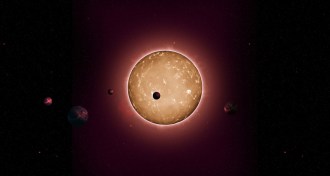 Astronomy
AstronomyOldest solar system unearthed by Kepler
Five rocky planets orbit the 11.2-billion-year-old star Kepler 444, suggesting that Earth-sized worlds formed in the early universe.
-
 Earth
Earth‘Island on Fire’ recounts enormous 18th century eruption
The 18th century eruption of Iceland’s Laki volcano spewed sulfurous gases that briefly cooled the globe and probably contributed to the early deaths of tens of thousands of people.
By Sid Perkins -
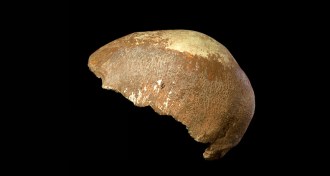 Anthropology
AnthropologyIsraeli fossil may recast history of first Europeans
New find suggests humans mated with Neandertals in Middle East before taking on Europe.
By Bruce Bower -
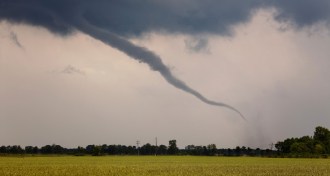 Climate
ClimateCentral American fires may intensify U.S. tornadoes
Smoke originating from Central American fires may strengthen U.S. tornadoes.
-
 Science & Society
Science & SocietySmell circuitry, stalled stem cells and more reader feedback
Readers discuss a journal's publishing practices, ask about the human sense of smell and weigh in on their favorite picks from our Top 25 stories of the year.
-
 Science & Society
Science & SocietyContemplating the coming of the drones
Editor in Chief, Eva Emerson, contemplates the pros and cons of small drones flocking to our skies and the science behind them, discussed in this issue's feature on animal flight research.
By Eva Emerson -
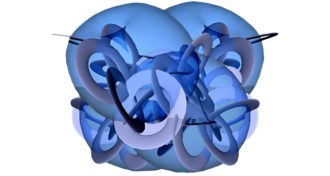 Quantum Physics
Quantum PhysicsTop 10 scientific mysteries for the 21st century
Solving the Top 10 scientific mysteries facing the 21st century will not be all fun but could be mostly games.
-
 Animals
AnimalsHighway bridge noise disturbs fish’s hearing
In the lab, blacktail shiners had trouble hearing courtship growls over Alabama bridge traffic recordings.
By Susan Milius -
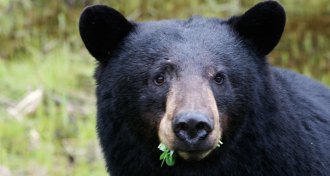 Animals
AnimalsAnt-eating bears help plants
A complex web of interactions gives a boost to rabbitbrush plants when black bears consume ants.
-
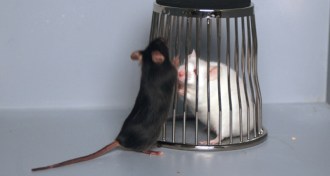 Neuroscience
NeuroscienceImmune system may remember and adapt to stress
Mice without immune systems who receive stressed immune cells are less anxious and more social, suggesting that the immune system can adapt to stress.
-
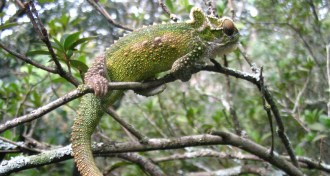 Animals
AnimalsChameleon tongue power underestimated
A South African chameleon species can shoot its tongue with up to 41,000 watts of power per kilogram of muscle involved, a new study finds.
By Susan Milius -
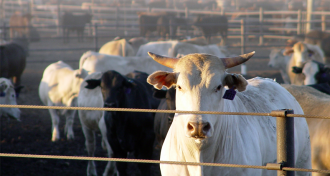 Agriculture
AgricultureSuperbugs take flight from cattle farms
Winds can carry antibiotics and drug-resistant bacteria from cattle farms to downwind communities.
By Beth Mole